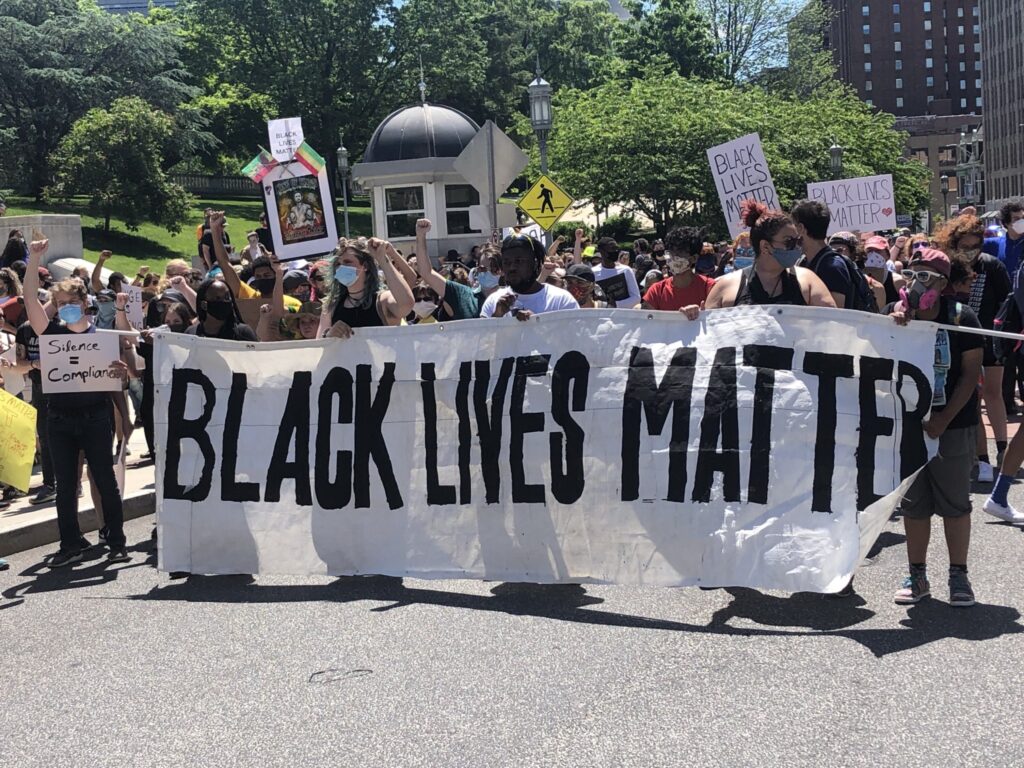
by John L. Micek
It’s tough to decide what was dumber and more cruel about the case of the woman who shouted a racial epithet in the face of Pennsylvania Second Lady Gisele Fetterman last weekend: That she decided to do it in the first place, or that she trailed Fetterman into the parking lot of an Aldi grocery store outside Pittsburgh and kept doing it.
Think of it as a variation on ‘fool me once,’ except, y’know, for racists.
Pennsylvania State Police have since identified the white woman who hurled the abuse at Fetterman, who is of Brazilian descent, came to the country illegally, and is now a naturalized citizen. For now, they’re not pressing charges, according to PennLive.
It might almost be enough for the video of this woman, her face contorted by hate, to live forever on social media as a document of the way this vile speech has become more prevalent and normalized over the last few years.
Fetterman, who is social media savvy, shared a video of the incident on Facebook. I’m not going to post the clip, but you can watch it here to get an idea of the horror of the moment, and to hear the very specific epithet the woman used.

(Pa. House photo)
Fetterman’s experience was followed just 24 hours later by news that some knucklehead had taped a “swastika-laden” note on the office door of state Rep. Aaron Kaufer, R-Luzerne, who is Jewish.
Local prosecutors declined to press charges in the case against the alleged perpetrator, a 59-year-old man, the Citizens-Voice reported. The man was caught on surveillance video last Saturday taping the note to the door, the newspaper reported.
The note, found on Kaufer’s door included a Hitler reference. Kaufer, who lost family in the Holocaust, told the newspaper he was deeply offended by it.
We all should be. Unfortunately, not enough of us are, which is why this cancer of hate continues to fester, and to spread across our body politic.
No matter what your party, or your heritage, or your faith, you should be able to look hate in the face, denounce it, and agree that there is no room for it in our midst.
You don’t contort your way out of it, as U.S. Rep. Scott Perry, R-10th District, did at a recent debate, by arguing that such speech is constitutionally protected — even if you don’t agree with it.
Both those things are true. But they’re not an excuse for inaction. Nor are they justification, as Perry did, to vote against a resolution condemning the hideous and baseless QAnon conspiracy theory.
You look it clear in the eye, denounce it for the offense against our shared values that it is, and then vow to use the power of your office to help vanquish it. Perry, who has served his country, should know better than that.
That’s what state Rep. Dan Frankel, D-Allegheny, who is Jewish, did in a statement released in the wake of the incidents.
He called on House and Senate leaders to pass a package of long-stalled hate crimes bills that were introduced after the tragic, anti-Semitic murders at Pittsburgh’s Tree of Life synagogue in October 2018. Frankel’s district includes Tree of Life.

In April 2019, months after the murders, lawmakers gathered in the House chamber to commemorate the fallen, and to vow that it would never happen again. The bills still haven’t moved.
“At a time when passions are high, we must remember that despite our differences, we are all people,” Frankel said in a statement this week. “We must remember that each of us is a human being, and that each of us deserve the same dignity and respect, especially if we disagree. It is time for us to stand up to hate and send a message that hate has no place in Pennsylvania.”
If you’re inclined to think that these are isolated incidents, don’t.
Between the start of the pandemic in mid-March and running through mid-May, Asian-Americans reported more than 1,700 incidents of coronavirus-related discrimination, according to Forbes. Even now, some among us insist on using a racial epithet to refer to an illness that’s spread worldwide.
In August, as they headed to services, members of Harrisburg’s Kesher Israel synagogue were greeted with the sight of swastikas scrawled across their sacred space. Local and state police, as well as agents from the Pennsylvania Attorney General’s Office, were summoned to the scene.
“My security antenna went up,” Rabbi Elisha Friedman told The ‘Burg magazine. “People were worried about safety.”

As the Capital-Star reported in August, anti-Semitic attacks hit their second-highest level ever in 2019. Jewish leaders and their advocates are rightfully alarmed.
” … Rising anti-Semitism is a danger to us all. We have found that, at times of political uncertainty, social unrest or downturns in the economy, anti-Semitic incidents tend to increase. And as anti-Semitism rises, other groups often experience rising hate as well,” Shira Goodman, regional director of the ADL of Philadelphia, told the Capital-Star in May.
Through August, 26 transgender people nationwide, some of them from Pennsylvania, had been murdered for no other reason than their gender identity, our partners at the Philadelphia Gay News reported. For months, Pennsylvania Health Secretary Dr. Rachel Levine has endured unspeakable attacks because she is a transgender woman.
Think about our summer of discontent, as Americans of all races, genders and generations took to the streets to protest centuries of systemic racism and oppression against Black Americans. Say their names: Breonna Taylor, Ahmaud Arbery, George Floyd, Rayshard Brooks, the list is heartbreaking, and it is seemingly endless.

Speaking to PennLive, Fetterman exhibited the kind of grace that we all hope to exhibit when we’re confronted with the sort of atrocity she suffered. She said she hoped it would serve as a learning experience.
“Maybe this is an opportunity for her to see herself and say, ‘Wow. I don’t like what I see. How did I get here?” Fetterman told PennLive.
Unfortunately, it’s going to take a lot more than a look in the mirror to eradicate the threat of hate we face now as a country. It’s far too short a walk from shouting epithets and sending hate notes to plotting the kidnapping, show trial, and likely execution of a sitting governor.
And when that hate is enabled at the highest levels of government — by presidents who use racist epithets to describe sitting members of the U.S. Senate, or state lawmakers who are openly homophobic, it gets legitimized and calcifies in our dialogue.
There are some who want to ignore it, arguing that giving that kind of speech undeserved oxygen only feeds into the pathologies of those who speak it, But as the Michigan plot reminds us, we ignore it at our peril.
Evil thrives in darkness. It’s up to all of us to shine the light. And never stop.
John L. Micek is the Editor-in-Chief of the Pennsylvania Capital-Star, where this article first appeared.